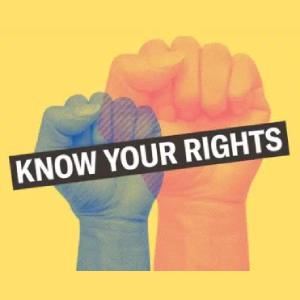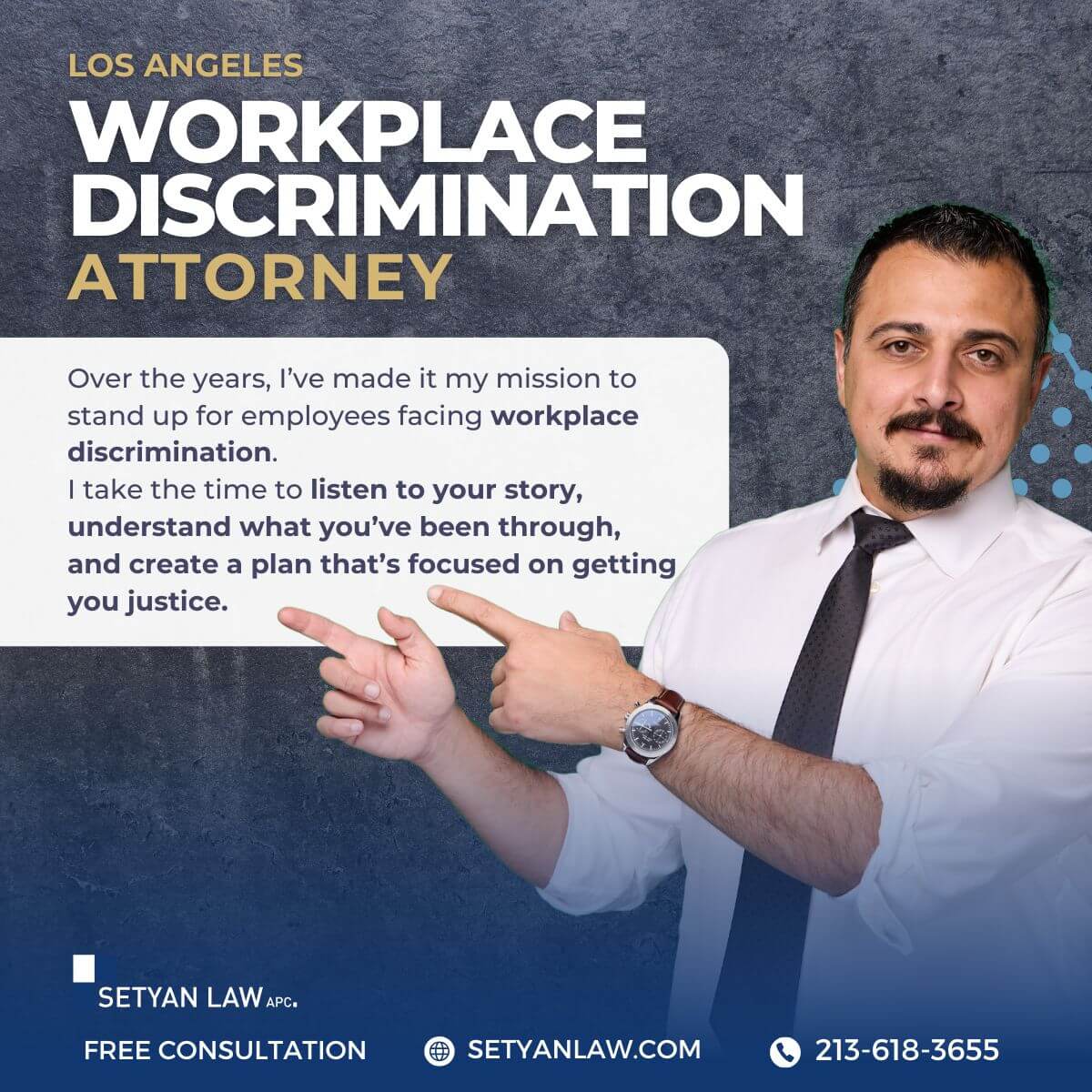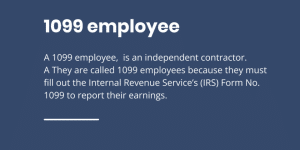Updated May 9, 2025
Can I Sue My Job for Discrimination?
Discrimination in the workplace is a serious issue that can affect your career, mental health, and overall well-being. If you believe you have been subjected to unfair treatment based on characteristics such as race, gender, age, or disability, you may be wondering about your legal options. This article will guide you through the process of understanding workplace discrimination, your rights under California law, and the steps you can take if you decide to pursue legal action.
Understanding Workplace Discrimination
Workplace discrimination occurs when an employee is treated unfairly or harassed based on specific characteristics. These characteristics can include:
- Race and Ethnicity: Discrimination based on an individual’s racial or ethnic background.
- Gender and Sexual Orientation: Unfair treatment due to one’s gender identity or sexual orientation.
- Age: Discrimination against employees aged 40 and older.
- Disability: Unjust treatment of individuals with physical or mental disabilities.
- Religion: Discrimination based on an individual’s religious beliefs.
In California, laws such as the Fair Employment and Housing Act (FEHA) protect employees from discrimination in the workplace. Understanding these laws is crucial for recognizing your rights and determining whether you have a valid claim.
Recognizing Discriminatory Practices
Identifying discriminatory practices can be challenging, as they may not always be overt. Here are some common signs of workplace discrimination:
- Unequal Treatment: If you notice that you are being treated differently than your colleagues for similar work, this may indicate discrimination.
- Harassment: Any form of harassment based on protected characteristics can be grounds for a discrimination claim.
- Retaliation: If you report discriminatory behavior and face negative consequences, such as demotion or termination, this may constitute retaliation.
- Failure to Promote: If you are consistently overlooked for promotions despite qualifications, it may be a sign of discrimination.
If you experience any of these situations, it is essential to document your experiences and gather evidence to support your claim.
Filing a Charge of Discrimination
Before you can file a lawsuit for discrimination, you must first file a charge with the Equal Employment Opportunity Commission (EEOC) or the California Department of Fair Employment and Housing (DFEH). Here’s how to proceed:
Step 1: Gather Evidence
Collect any relevant documentation that supports your claim, including:
- Emails or messages that demonstrate discriminatory behavior.
- Performance reviews that highlight your qualifications.
- Witness statements from colleagues who can corroborate your experiences.
Step 2: File a Charge
You can file a charge of discrimination through the EEOC or DFEH. This process typically involves:
- Completing a charge form that outlines your allegations.
- Submitting the form within the required time frame (usually within 180 days of the discriminatory act).
- Participating in an interview with an investigator to discuss your case.
Step 3: Await Investigation
Once your charge is filed, the agency will investigate your claims. They may contact your employer for a response and gather additional evidence. The investigation process can take several months.
Step 4: Receive a Right to Sue Letter
If the agency finds sufficient evidence of discrimination, they may issue a "right to sue" letter, allowing you to pursue legal action in court. If they do not find sufficient evidence, you may still have the option to file a lawsuit, but it is advisable to consult with an attorney first.
Legal Options After Filing a Charge
If you receive a right to sue letter, you can proceed with filing a lawsuit against your employer. Here are some key considerations:
Types of Claims
You may pursue various claims, including:
- Disparate Treatment: Claims based on unequal treatment due to discrimination.
- Hostile Work Environment: Claims arising from a workplace that is intimidating or abusive due to discriminatory practices.
- Retaliation: Claims based on adverse actions taken against you for reporting discrimination.
Seeking Damages
If you win your case, you may be entitled to various forms of compensation, including:
- Back Pay: Compensation for lost wages due to discriminatory practices.
- Emotional Distress Damages: Compensation for the emotional impact of discrimination.
- Punitive Damages: Additional damages intended to punish the employer for egregious behavior.
The Importance of Legal Representation
Navigating the legal landscape of discrimination claims can be complex and overwhelming. Hiring an experienced employment attorney can significantly enhance your chances of success. Here’s why:
- Expertise: An attorney understands the intricacies of discrimination law and can help you build a strong case.
- Negotiation Skills: Your attorney can negotiate on your behalf, whether with the agency or in court.
- Emotional Support: Legal disputes can be emotionally taxing. Having an advocate can provide reassurance and guidance throughout the process.
Alternative Dispute Resolution
Before pursuing a lawsuit, consider alternative dispute resolution methods, such as mediation or arbitration. These processes can be less adversarial and may lead to a quicker resolution. Here’s how they work:
- Mediation: A neutral third party facilitates a discussion between you and your employer to reach a mutually agreeable solution.
- Arbitration: A neutral arbitrator hears both sides of the case and makes a binding decision.
These options can save time and resources while still addressing your concerns.
Conclusion
If you believe you have been a victim of workplace discrimination, it is crucial to understand your rights and the steps you can take to seek justice. California law provides robust protections against discrimination, and you have the right to pursue legal action if necessary. Remember to document your experiences, file a charge with the appropriate agency, and consider seeking legal representation to navigate the complexities of your case.
Taking action not only helps you but also contributes to a fairer workplace for all employees. If you have questions or need assistance, do not hesitate to reach out to a qualified employment attorney who can guide you through the process.
Call Setyan Law at (213)-618-3655 to schedule a free consultation.







